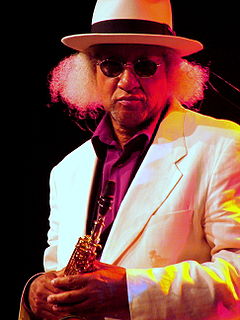A Quote by Neil deGrasse Tyson
Humans aren't as good as we should be in our capacity to empathize with feelings and thoughts of others, be they humans or other animals on Earth. So maybe part of our formal education should be training in empathy. Imagine how different the world would be if, in fact, that were 'reading, writing, arithmetic, empathy.'
Related Quotes
Empathy occurs when we suspend our single-minded focus of attention and instead adopt a double-minded foucus of attention. When our attention lapses into single focus, empathy has been turned off. When we shift our attention to dual focus empathy has been turned on. Empathy is our ability to identify what someone else is thinking or feeling and to respond to there thought or feelings with an approriate emotion. Empathy makes the other person feel valued, enabling them to feel that their thoughts and feelings have been heard.
Surely it should be a matter of moral responsibility that we humans, different from other animals mainly by virtue of our more highly developed intellect and, with it, our greater capacity for understanding and compassion, ensure that medical progress slowly detaches its roots from the manure of non-human animal suffering and despair.
It's not that humans and non-humans are identical... but the lack of understanding that led to the slave trade is the same lack of understanding many people have about animals today. When slaves were brought over from Africa, many people believed they were not humans, that they didn't have feelings. Many people believe that primates and other animals don't have feelings, too, but they do.
Empathy is a human trait. But lots of humans exercise some traits more energetically than others. By "the usefulness of empathy" I mean the way in which a progressive might claim that empathy is a crucial aspect of any benign political system, and the way a conservative might argue that not only is it not necessary, but it might not even be all that helpful, in that regard.
Eventually, I think, by using such elements as flocks of birds or biblical quotes, repeatedly I add meaning to my final product. I'm still exploring how to express my feelings through these elements. I've always felt that in order to portray humans, you should not be shooting humans; you should be shooting something else. And what I've used is animals, which are very important in my films.
When humans act like animals, they become the most dangerous of animals to themselves and other humans, and this is because of another critical difference between humans and animals: Whereas animals are usually restrained by the limits of physical appetites, humans have mental appetites that can be far more gross and capacious than physical ones. Only humans squander and hoard, murder and pillage because of notions.
I believe in empathy. I believe in the kind of empathy that is created through imagination and through intimate, personal relationships. I am a writer and a teacher, so much of my time is spent interpreting stories and connecting to other individuals. It is the urge to know more about ourselves and others that creates empathy. Through imagination and our desire for rapport, we transcend our limitations, freshen our eyes, and are able to look at ourselves and the world through a new and alternative lens.
I mean, the piano, of course, but I think the piano should be taught in school just like mathematics, just like reading, writing and arithmetic. I'd say reading, writing, arithmetic and rhythm. But that should be a prerequisite, because then the quality of music in the world at least in the United States, would be much better, if everyone knew something about the piano and about music, they would know this is not good. Right now, there is so much music out that's not good, but no one knows the public doesn't know.
Humans — who enslave, castrate, experiment on, and fillet other animals — have had an understandable penchant for pretending animals do not feel pain. A sharp distinction between humans and 'animals' is essential if we are to bend them to our will, make them work for us, wear them, eat them — without any disquieting tinges of guilt or regret. It is unseemly of us, who often behave so unfeelingly toward other animals, to contend that only humans can suffer. The behavior of other animals renders such pretensions specious. They are just too much like us.
































